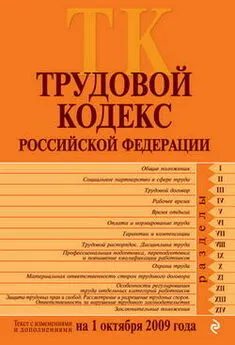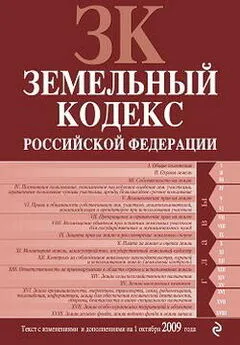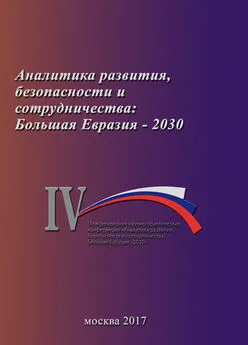Коллектив авторов - Рефлексивные процессы и управление. Сборник материалов XI Международного симпозиума 16-17 октября 2017 г., Москва
- Название:Рефлексивные процессы и управление. Сборник материалов XI Международного симпозиума 16-17 октября 2017 г., Москва
- Автор:
- Жанр:
- Издательство:неизвестно
- Год:2017
- Город:Москва
- ISBN:978-5-89353-520-4
- Рейтинг:
- Избранное:Добавить в избранное
-
Отзывы:
-
Ваша оценка:
Коллектив авторов - Рефлексивные процессы и управление. Сборник материалов XI Международного симпозиума 16-17 октября 2017 г., Москва краткое содержание
Сборник материалов симпозиума представляет интерес для специалистов из гуманитарных, естественнонаучных и технических областей знания, ориентированных на проблемы управления и развития, для студентов и аспирантов, а также для широкой аудитории управленцев-практиков.
В формате a4.pdf сохранен издательский макет.
Рефлексивные процессы и управление. Сборник материалов XI Международного симпозиума 16-17 октября 2017 г., Москва - читать онлайн бесплатно ознакомительный отрывок
Интервал:
Закладка:
The foci of our arguments are first, on the relationships of people and organisations with their environmental agents and second, on their multiple interactions, which are responsible for self-organising processes. Today these relationships and interactions are increasingly mediated by BDA and therefore it is necessary to explore:
1) The extent to which BDA is supporting individual and organisational learning through its contribution to increasing effective relationships and interactions. This requires revision of relationships and interaction among actors within an organisation. In this purpose we focus on varied issues of concern in business organisations. Often these organisations support relationships that increase the chances of hierarchical structures and therefore of inhibited learning throughout them;they are driven by fragmentation, inadequate coordination of actions and lack of trust. How can BDA overcome these shortcomings and therefore increase cohesion and the organisation's dynamic performance?
2) The extent to which people in organisations, supported by BDA, can develop effective interactions and relationships with environmental agents. For particular issues of concern we explore both 'operational interactions' with customers and 'problematic interactions' with multiple agents to increase opportunities for innovation and adaptability. We discuss for these issue technologically mediated interactions and relationships that increase individual and organisational competencies and therefore their learning.
1.1.1 Methodology. In this paper we use the Viable System Model (Beer, 1979, 1981, 1985) – VSM- and the VIPLAN Methodology (Espejo, 1993; Espejo & Reyes, 2011); they help us to discuss the braiding of organisational learning (Espejo, Schuhmann, Schwaninger, & Bilello, 1996) and technological processes. We support model and methodology by a systemic epistemology, which highlights holism, in particular the relevance of communications, interactions and complexity. More specifically we adapt the Viplan Methodology (Espejo & Reyes, 2011) to the use of BDA.
The emphasis is in the interactions and relationships of agents at multiple levels, from the global to the local. We use a systemic epistemology that highlights structural determinism in organisations and structural coupling between agents and actors (Maturana & Varela, 1992). Structural determinism highlights the autonomy of organisational systems; it is the closure of their structures that determines which environmental data makes sense within the organisation. Structural coupling highlights the history of communications and interactions between agents and actors leading to the structural congruence between them.
Big data is produced by the huge number of transactions natural to all situations. The problem is their management. Crucially to focus on relational aspects we use Ashby's Law of Requisite Variety (Ashby, 1964)and the ideas of variety operators to balance performance at satisfactory levels. Dealing with data requires considering how they are absorbed by the structures affected by them, as well as their responses. It is in absorption that the structural, ethical and technical issues of big data and people come together.
It is not always the case that an enterprise shows the property of closure necessary for a desirable autonomous behaviour in its environmental context. To improve its structure we focus on processes of individual and organisational learning. Individual learning is increasing their capacity to take effective action and organisational learning is increasing effective action in their environments. Among several factors restricting this learning are poor models of these environmental situations. "Every good regulator of a system must be a model of that system" (Conant & Ashby, 1970). But it is not useful to be a good regulator of a poorly structured situation, hence the duality of structure and data models that we explore in this paper. Overcoming structural fragmentation helps making data more meaningful to those affected by the contextual changes.
Multiple models explain organisational learning processes. Koskinen (Koskinen, 2012)for instance explores the potential of process thinking to open up new ways to understand organizational learning, particularly through problem absorption within problem solving. In organizations existing rules and norms are usually used as the basis for solving new problems even when this means stretching those rules. Such absorption of new problems by rules reduces the need to explore and develop new solutions and to encode those solutions into new rules.(Argote & Miron-Spektor, 2011) propose a theoretic framework for analysing organizational learning. According to the framework, organizational experience interacts with the latent component and an active component of contextsthrough which learning occurs. However, most of these models regard learning separately from the other processes in the organisation. We offer amore holistic perspective as provided by the VSM and Viplan methodologyl(Beer, 1981; Espejo, Bowling, & Hoverstadt, 1999)
2.1 Big DataAnalytics (BDA). Even though the technical aspect of big data generation calls for potent data tools, capable of receiving, storing, understanding and reacting to the vast quantities of big data, especially the variety part hides a dark secret. Digital recording of real world transactions only create data models,partially capable of reflecting their complexity. Though we may agree that capturing unstructured data has the potential of improving our perception of an event, we can only speculate about the effect of storing unstructured, loosely connected event data,to our understanding of its complex dynamics.Organisational and individual learning are important to overcome this uncertainty.

Figure 1. The technical perspective on the Big Data three V’s
(http://i1.ytimg.com/vi/H7NLECdBnps/maxresdefault.jpg)
A vast majority of the literature that deals with Big Data related issues is focused on the technical aspects of data collection (Addo-Tenkorang & Helo, 2016; Hashem et al., 2015), whilst its value added and its implications on the organisation‘s performance is analysed rather sparsely(Addo-Tenkorang & Helo, 2016).(Akter, Wamba, Gunasekaran, Dubey, & Childe, 2016)similarly state that in most organisations investment is focused on developing BDA capabilitiesrather than on their positive effects enhancingthe their performance(Wamba et al., 2017),(Gupta & George, 2016). In our view this is a point also related to organisational learning.
BDA is employed to increase the understanding of the areas that so far have been dominated by guts and intuition (McAfee & Brynjolfsson, 2012)about how to introduce precise management, effective interventions, and the new level of organisational agility. It is particularly focused onbusiness environment(Perko & Ototsky, 2016), especially that closely related organisations, as for instance customer behaviour or partners in the supply chain (SC), but also uses IOT (?)to measure detailed internal processes.From our perspective, these are efforts to integrate multiple views,(Sivarajah, Kamal, Irani, & Weerakkody, 2017) to present a holistic view of the Big Data challenges in organisations and BDA methods by analysing the published research reports on that subject.
We want to make, with the use of BDA, more transparent people‘s interactions and communications in organisations. What are their demands for learning in these situations? The risk is that an insensitive use of BDAmay overwhelm people and organisations. Management of big data needs awareness of our cognitive, ethical and organisational capabilities. For instance, with reference to the justice system, it is dangerous to have judges sentencing individuals with the support of big data, based on appreciating their current and possibly their future behaviour, without the monitoring of these individuals‘ contextualised situations, that is, without efforts to improve organisational processes. Also, in commercial activities, it may be ineffective for companies to use marketing algorithms that ignore individual and structural competencies. Overwhelming people with marketing data, abusing their privacy, is a recipe to alienate them. To use BDA to understand and predict individuals‘ insights in their organisations is necessary. Many, among them (Bello-Orgaz, Jung, & Camacho, 2016)use social media data analysis methodology for that purpose. (Perko, 2017) analyses the behaviour of finance officers to predict their future actions. (Bellomo, Clarke, Gibelli, Townsend, & Vreugdenhil, 2016) explore behaviour in evacuation crowd dynamics to prevent or mange critical situations.
2.1.1 The Viable System Model and Viplan Methodology. The Viable System Model (Beer, 1979, 1981, 1985) – VSM- and the VIPLAN Methodology (Espejo, 1993; Espejo & Reyes, 2011) have been used to discuss the braiding of organisational learning (Espejo, et al., 1996) and technological processes. Model and methodology are supported by a systemic epistemology, which highlights holism, in particular the relevance of communications, interactions and complexity in organisations.
In this paper we adapt theViplan Methodology to analyse BDA in organisational system (Espejo & Reyes, 2011). This adaptation is presented in figure 2. It brings together data management and organisational learning. This is a methodology for organisational and individual learning and for data management. It is driven by two learning loops; the first relates to the issues we want to make transparent in an organisation and callthe issue learning loop (the white loop) and the second is an organisational learning loop (the black loop). Observing, assessing, designing and implementing drive both loops. For issues of concern, such as those we referred above (e.g. sentencing in the justice system, adverting in enterprises, financial reporting and so forth) we refer to, observing issues of concern with the support of big data; assessing these observations from the perspective of actors and agents interactions and the variety operators dealing with their complexity asymmetries; designing improved variety operators to make interactions more effective and finally, closing the loop, implementing new variety operators which generate new data. However, this issue-learning loop happens in the context of an organisational system that is learning as well. This learning aims at improving this context by assessing the organisation structure embedding the issue of concern, designing structural improvements and implementing these improvements. This organisational learning is necessary to deal with ethical and performance issues relevant to the issues of concern.

Figure 2. The Viplan methodology (adaptation of Espejo, 1993)
3.1 BDA redefines the data sharing, objectives insights and knowledge concepts. Controlled sharing of data, objectives insights and knowledge between peers, sub-systems, organisation – even the competing ones, elevates the understanding of the whole system, and provides a higher viability probability comparing to the others. (Perko, Primec, & Horvat, 2015) for instance elaborate the business, law and ethical perspectives of sharing business partners‘ behaviour data.
3.2 The generation and use of tacit knowledge is redefined:
• Thenumber of issues analysed is dramatically increased: from maybe hundreds, analysed by an individual, to millions, analysed with the wisdom of the crowds.
Читать дальшеИнтервал:
Закладка:










